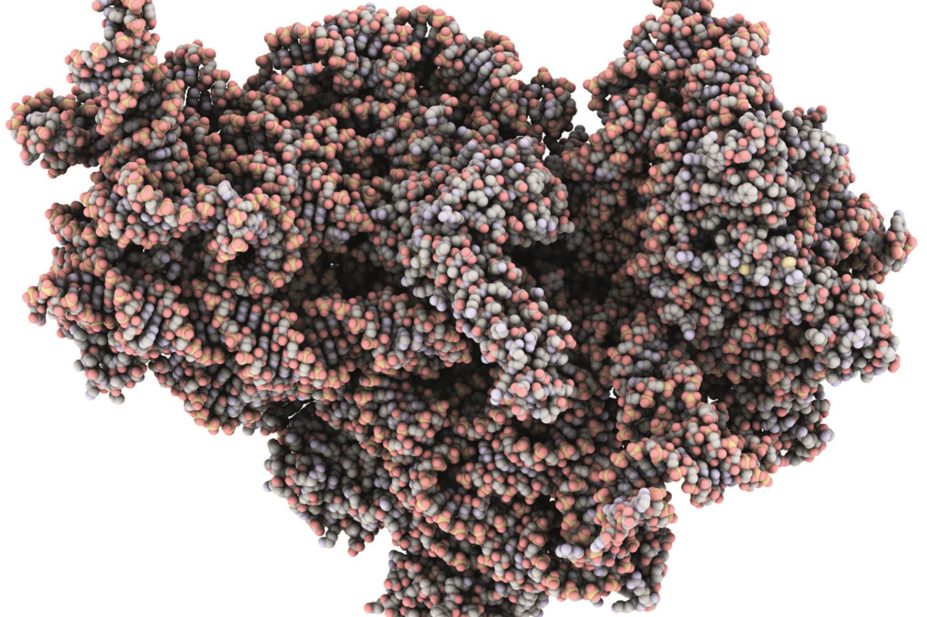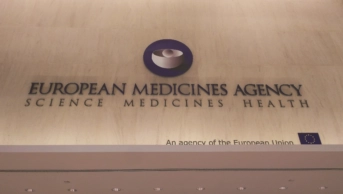
Wikimedia Commons
Antibiotics often target the way bacteria manufacture proteins by inhibiting the function of the ribosomes.
In a study published in eLIFE (online, 18 September 2014), researchers aimed to find out whether they could prevent the ribosomes from forming at all[1]
. They screened a library of 30,000 compounds, including 3,500 existing drugs, against strains of Escheria coli and found a number of drug candidates that inhibited growth of the bacteria by inhibition of the ribosome. One drug had a particularly profound effect on bacterial growth, the anticonvulsant medicine lamotrigine. Upon examination, it was found that the bacteria accumulated the ribosomal subunits but were unable to assemble them into a complete ribosome in the presence of lamotrigine.
On the basis of these results, the researchers believe that lamotrigine could be a lead for a whole new mechanistic class of antibiotics, as well as useful probes during research of bacterial ribosomes.
References
[1] Stokes JM et al . Discovery of a small molecule that inhibits bacterial ribosome biogenesis. eLIFE 2014. doi: http://dx.doi.org/10.7554/eLife.03574 .


